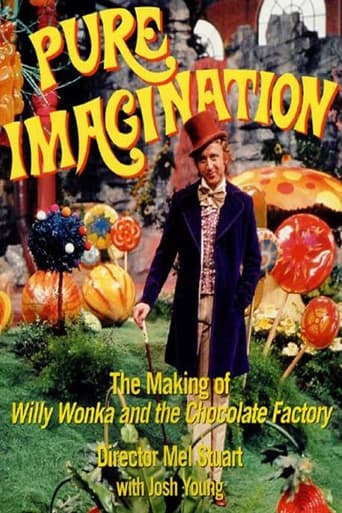Stevecorp
Don't listen to the negative reviews
Glimmerubro
It is not deep, but it is fun to watch. It does have a bit more of an edge to it than other similar films.
Calum Hutton
It's a good bad... and worth a popcorn matinée. While it's easy to lament what could have been...
Kinley
This movie feels like it was made purely to piss off people who want good shows
boombox1
Hi, I'm replying to the post from before. I just wanted to let that author know as being a Muslim, albeit from India, women are allowed to primp themselves. There is nothing saying that they can't. But it is noted, that women should only do so for their husbands, not others. For example, it is said that a women should not apply perfume outside the home. Also, there is nothing against women touching other women, like how a stylist would touch a customer. Homosexuality is not allowed, or any other sexual touching is not allowed. Lastly, about the comment with the mother telling them to cut her daughter's hair like a boys. I have two things that come to mind: It is cheaper to get it cut once short and let it grow out. Its just a matter of money. The other thing is she might have lice. I know people that had to go bald to get rid of lice or dandruff.
bifemmefatale
While I wished for a tighter narrative structure, or maybe a closer focus on particular women, more like "Born Into Brothels" did by following a handful of children closely, I enjoyed this film. It gives the viewer glimpses into the homes and daily lives of Afghan women, instead of just the street shots of scowling armed men we so often see in the news.It does make any culturally sensitive American cringe a bit when you see the hippie-dippy woman in John Lennon glasses telling an Afghan woman she needs to meditate and practice deep breathing before going home to slave for her strict, demanding husband and in-laws, or when you hear the abrasive New Yawk instructor upbraiding the students for not doing full face make-up and hair every day so they can represent the New Look to the rest of Afghan women, only to be told that if the women wear full makeup every day, they'll be punished by their husbands and in-laws for loose morals. Even so, I admired the instructors for taking on this project and bringing so much obvious joy to women whose lives seem to have held so little; and admired the students even more for their dogged determination to complete the training despite the demands of family and the lack of such seemingly ordinary things as driver's licenses.
noralee
"The Beauty Academy of Kabul" documents a small but appealing cross-cultural, women to women effort based around the universal, and probably Darwinian, female urge to look pretty. The film opens with historical footage showing how Kabul got to its present ruined state from the 1970's urbane center that expatriate participants in this experiment remember, though with no mention if the post 9/11 coalition's intervention against the Taliban furthered the civilians' plight. This seems like a follow-up to the docudrama "Kandahar (Safar e Ghandehar)" which showed women's plight in Afghanistan up through the Taliban take over. Then, with a little name dropping of the corporate beauty products sponsors, we see a diverse group of women from England and the U.S. with different degrees of practicality and naiveté set up a school to teach local women hair styling and other beauty treatments in a three month curriculum. The project provides not only an entrepreneurship opportunity for the women (setting up both relief and possible imbalance in their family's economy), but is just barely acceptable under Islamic role as it is women touching women indoors (just as they did secretly in their homes under the Taliban -- whose wives also snuck out to visit), as long as there's some limits on type of styles and touching. Over millennia, men and prophets have railed against women's urge to preen, but all societies make much of marriage, whether love matches or not, and even the most rigid male has to give in to allow for dressing up at that important ceremony (and getting to do a wedding is the most profitable opportunity for local stylists).Sometimes the women teachers intentionally take on the male powers that be to flaunt their Western independence when they brook no nonsense about late deliveries and shoddy work, or driving, sometimes they are not helpful in their lack of sympathy for women's fears and societal restrictions (it's not clear if there's been physical abuse or just threats from fathers, husbands and brothers). The experiences of the expatriate women, who also serve as translators, are moving, both as biography and how they relate to those who remained. When the teachers get away from trying to futilely change the local culture and focus on imparting skills, their helpfulness is clear. The students are again and again portrayed as incredibly hard-working, cooking and taking care of their husbands from arranged marriages and many young children, practicing and handling clients until late at night while men are invariably shown as lazing around, including the ostensible manager, many with antagonistic stares, many with guns. There is one husband who seems sympathetic to his wife as he comes to enroll her while she's dealing with a family illness. (We see very few women in the Kabul street scenes and they are encased in burkhas.)When we can apparently hear honestly from the women students they are fascinating -- we see one young woman change to robotically repeating what her father insists she say and another woman react nervously when her normally loquacious (and quite nosy) teachers are shocked into silence by her frank and contented acceptance of her second class role within the family. But while the Westerners push their philosophy, these survivors have dealt with extremists before and are good at pushing back -- especially at women who are single and childless.Some intriguing cultural points aren't clarified -- why does one woman insist that her young daughter's hair be cut like a boy's? Shades of the gender-hiding film "Osama"? Why do so many of the women want curly permanents -- even as the teachers try to explain about healthy hair care? The locals seem to have a wide variety of hair types so where in such an isolated culture does the demand for a curly style come from? I was reminded of a recent Oprah focusing on her own "bad hair day" where the black women, including "super models" wanted straight hair and I couldn't figure out why there either. Given the huge, pent-up demand for these classes, which at one point a teacher calls "Beauty Without Borders," was there another session?The subtitles are always clearly legible, using black outlining. I presume that the translations of the English-speaking instructions to students were edited out for smooth viewing.The one man in the matinée I was at fell asleep, loudly snoring. This was co-produced by the BBC and Discovery, so I presume it will be available on cable.This film intimately personalizes a culture much in the news that we rarely get to see this close-up, as well as the difficulties and potentials of one-on-one outreach. Even within Islamic strictures, we are left with the sense that a comb and brush are instruments of revolution.
HartOfAK
An excellent movie about Afghan women, their life under the Taliban, and their hopes for the future. Some American women seemed slightly condescending to their Afghan students, but the filmmakers seemed sort of condescending to the Americans, who after all, were hairdressers, not sociologists, and who were spending their time and money, not to mention risking their lives to bring a little normalcy back to a country that hasn't been "normal" for a very long time.Like, "Voices of Iraq", this movie helps us to see average people caught in a "War on Terror" zone, and how they're coping. Unlike news reports that can only focus on the immediate, or the outrageous, it helps us to put a human face on the people of these countries within the context of their culture, and without overt political spin.

